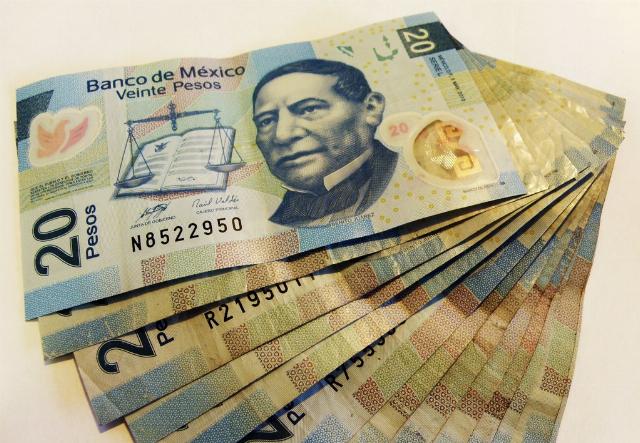Peso falling
Back in 1994, the Mexican peso was devalued and it threw the Mexican economy into shock and awe. The drop happened, as it did in 1976 and 1982, because the currency was not allowed to float and it became overvalued. Mexicans always go postal when they learn that the peso is down and the dollar is more expensive.
Well, the peso is down and here is the story:
The Mexican peso touched its weakest against the U.S. dollar in nearly two years before paring much of the losses back, as concerns the U.S. economy could be headed for a recession added to recent peso weakness as a popular global trade unwinds.
The Mexican currency was trading at 19.37 pesos per greenback, down about 1.1% from the Friday close. The peso's overnight fall in foreign operations was of as much as 4.4%, when the currency surpassed the psychological barrier of 20 pesos per dollar, a level not seen since October 2022.
Why does this matter, you ask? Who cares? I don't make or spend pesos. Well, while it’s a Mexican problem, it affects us because it drives people north. Any economic instability makes people look north for an opportunity to work and support their families back home. Add to this an open border and you have a big "problema." Also, a falling peso means that those remittances ($63.3 billion) going south will now be more important than ever.
In the short run, there is nothing we can do because the recession is probably headed our way too.
The falling peso comes at an interesting time because a new president is taking over on October 1st. The current president reminded everyone that his government has a lot of reserves to tackle the currency erosion. That's true, but reserves get eroded quickly as we learned in prior peso crisis. On the other hand, The president-elect has a lot of ambitious "green energy" plans and anti-poverty proposals. All of that just got shelved by economic reality.
Here is a tip. If your Mexican friends south of the border sound a little angry these days, remember that it's the peso.
P.S. Check out my blog for posts, podcasts and videos.

Image: Dennis Sylvester Hurd
FOLLOW US ON
Recent Articles
- The Fruits of Trump’s Audacious Policies
- Will Trump’s Tariff Ambition Strangle MAGA in the Cradle?
- Navarro Tariffs are Too High
- Will Musk’s Nightmare Come True?
- From Mayberry to Mayhem
- We Didn’t Start the Trade War—We’ve Just Finally Joined It
- Greenland: How Trump Can Deal with the Raging Danes to America's Advantage
- Greenland at the Crossroads: Why U.S. Leadership is Crucial
- How the Death Penalty Should Work
- Mr. Schumer — You Make No Sense!
Blog Posts
- An interesting challenge on tariff logic from former Reagan budget director, David Stockman
- Billionaire heiress Rep. Sara Jacobs makes a fool of herself in bid to defund DOGE
- Donald Trump and Pete Hegseth understand that war is about winning while minimizing American casualties
- From hero to zero in 75 days?
- Again, the times that try men's souls
- How is the U.S. the bad guy on tariffs?
- An easy explanation of this tariff tiff
- A tribute to Val Kilmer
- ‘Free trade’ is not as great as you think it is
- Trump’s tariff idea is consistent with every human society ever
- Jasmine Dixiecrat
- RFK Jr. wants scientific analysis of autism, but maybe society is the problem
- As the House is about to grill Biden’s doctor, Biden’s chief of staff admits the truth: They always knew
- California: Second Amendment foot dragging
- DOGE: the Baier interview






